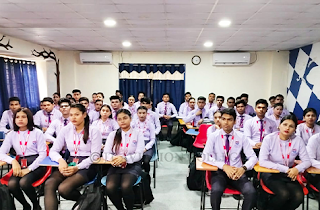How Your Odds of Getting Hired Vary by Airline: Which Ones Are More Competitive?

If you’re aspiring to become a flight attendant, one of the most important factors to consider is which airline to apply to. Different airlines have varying levels of competition in their hiring processes, and understanding these differences can help you target the right opportunities. While some airlines are known for being incredibly selective, others may offer a better chance for candidates with fewer qualifications or less experience. In this blog, we’ll compare how different airlines' hiring processes can affect your odds of landing a flight attendant job and what you can do to increase your chances at some of the more competitive airlines. 1. Major International Airlines: High Prestige, High Competition Airlines like Emirates , Qatar Airways , Singapore Airlines , and Cathay Pacific are among the most sought-after by aspiring flight attendants. These carriers offer competitive salaries, generous travel benefits, and the opportunity to fly international routes. However, the ...

.jpg)

.jpg)

